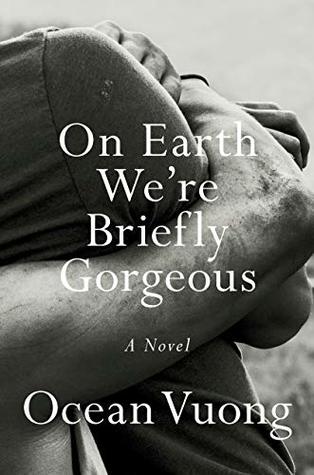“On Earth We’re Briefly Gorgeous:” A heart-wrenching exploration of identity and trauma

February 14, 2022
In his much-anticipated debut novel, “On Earth We’re Briefly Gorgeous,” Ocean Vuong recounts the heart-wrenching story of Little Dog, a Vietnamese American writer grappling with lingering effects of generational trauma. With semi-autobiographical hints from Vuong, Little Dog’s story is enveloped in themes of exploring identity and masculinity.
“On Earth We’re Briefly Gorgeous” unearths the story of Little Dog and his family history in an experimental fashion: the novel is formatted as one long letter from Little Dog to his nearly illiterate mother, Rose. While reading the novel, I found this unconventional structure to be very engaging. At times when Vuong would go off on a tangent or immersively describe a scene, his casual remarks directed towards his mom made me realize again that this book is a letter. Though the letter is addressed to his mother who will likely never be able to read it, Vuong manages to express the complex emotions of Little Dog and delivers a lyrically-written story.
The story spans over the majority of Little Dog’s life and strays from the structure of a typical novel in many ways. Much of the novel has a poetic touch to it, and some sentences don’t even follow traditional grammatical rules. Vuong is best known for his poetry, winning the T.S Eliot Prize for poetry in 2017. His poetic background is very apparent in “On Earth We’re Briefly Gorgeous,” especially near the end of the book where the story breaks from a narrative structure into full out poetry. In addition to his characteristic poetic language, Vuong also intertwined his experiences with Little Dog’s story when writing the novel. Similar to Little Dog, Vuong is a Vietnamese immigrant who was born on a small rice farm and migrated to the United States as a child.
With no set conflict and a nonlinear timeline, Vuong inserts anecdotes from Little Dog’s childhood into the letter. Through these anecdotes, Vuong masterfully captures the progression of Little Dog’s insights as he ages. Vuong depicts the innocence and unawareness of Little Dog as a child, the exploration and confusion during his adolescent years, and finally, the introspective nature of Little Dog as an adult. In one particular anecdote, a young Little Dog playfully pranks Rose by jumping at her, yelling “Boom!” Little Dog is puzzled to see his mom experience a panic attack, a result of the trauma she endured during the Vietnam War. “I didn’t know that the war was still inside you,” Little Dog explains as an adult, “… that there was a war to begin with, that once it enters you it never leaves—but merely echoes, a sound forming the face of your own son.”
In many ways, Little Dog and Rose portray a complex-mother son relationship. Vuong’s description of their relationship felt incredibly nuanced and personal.
Another aspect of the novel that I enjoyed was Vuong’s portrayal of a complex mother-son relationship. Within the first few pages of the novel, Vuong reveals that Rose was physically abusive towards Little Dog on multiple occasions throughout his childhood. Yet, Little Dog is writing this expressive, intense account of his life to his mother, and there’s several small anecdotes where they’re shown supporting each other. Rose and Little Dog have been with each other through thick and thin and although their relationship is filled with complexities and is abusive at times, they seem to be undeniably bonded.
“On Earth We’re Briefly Gorgeous” deals with heavy themes and subject matter—the traumatic effects of war, abusive relationships, race and masculinity, and more. Though saddening at times, Vuong’s unique prose style and use of language made “On Earth We’re Briefly Gorgeous” an incredible and worthwhile read.



